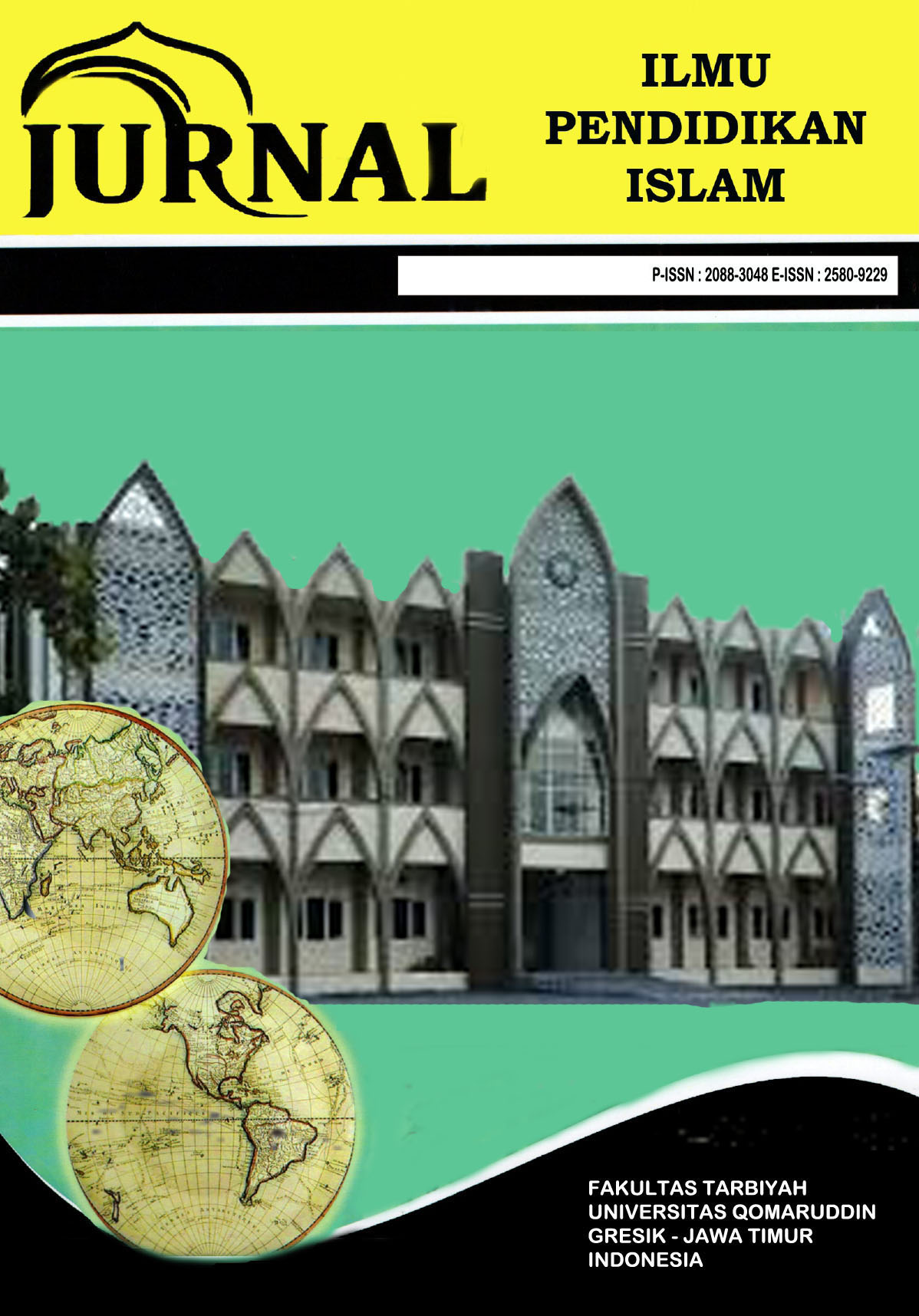Penerapan Metode Student Division (STAD) dalam meningkatkan Konsentrasi Belajar Pada Mata Pelajaran PAI Siswa Kelas 3 di SDN Telukjambe II Team Achievment
Abstract
Many students become bored with conventional and monotonous learning methods, which is why an innovative approach to education is necessary. Active learning is one such approach. If students become inactive and participate less in learning can result in, many students not concentrating, thus affecting how learning goals for students. The aim of this study was to improve student focus through the use of Student Team Achievment Division (STAD), a cooperative strategy. The study involved two observers to observe researchers in delivering the STAD method where the results of these observations will be used as reflection as material for improvement in the next cycle, so that the STAD method can achieve optimal concentration.The method used to determine and ascertain the source of the data, that is, the quantitative descriptive method is applied. which comes from raw interview data, observer sheets, and student concentration assessment rubrics which then the results are poured descriptively. The result of this study is that students experience an increase in their learning concentration in PAI lessons through the STAD method, not only increased learning concentration but there is an improvement in student activities that are more active and fun. The conclusion of this study is that the STAD method can be used as a teaching method to increase student focus. It is intended that this research will serve as a model or reference point to improve all classroom problems, especially those related to students' ability to focus on their learning.
References
Andriana, E., Rokmanah, S., Aprilia, L., Guru, P., Dasar, S., Sultan, U., & Tirtayasa, A. (n.d.). ANALISIS
TINGKAT KONSENTRASI BELAJAR PESERTA DIDIK DALAM PROSES
PEMBELAJARAN DI SD NEGERI TEMBONG 2.
Azizah, N. (2022). Hubungan Antara Self Regulated Learning Dengan Flow Akademik Pada Siswa SMAN 8
Banda Aceh (Doctoral dissertation, UIN Ar-Raniry).
Martono, H., & Junaidi H Matsum, Mp. H. (n.d.). HASIL BELAJAR SISWA DI SMK NEGERI 1
NGABANG (Studi Kasus Siswa yang Tinggal Dengan Orang Tua Asuh) ARTIKEL Oleh FRANSISKA
DWI MAYASARI NIM F2191131009.
Noviati, R., Misdar, M., & Adib, H. S. (2019). Pengaruh lingkungan belajar terhadap tingkat konsentrasi
belajar siswa pada mata pelajaran akidah akhlak di MAN 2 Palembang. Jurnal PAI Raden Fatah, 1(1),
-20.
Simorangkir, D. S., & Napitupulu, E. (2022). Pengaruh Konsentrasi Belajar terhadap Kemampuan
Pemecahan Masalah Matematis Siswa. Formosa Journal of Science and Technology, 1(6), 711–722.
https://doi.org/10.55927/fjst.v1i6.1597
Sudrajat, U. Model pembelajaran student teams achievement divisions (STAD) untuk meningkatkan
aktivitas dan hasil belajar PKn di kelas IV sekolah dasar. Jurnal Pendidikan Dasar, 10(1).
Suhaemin, S., & Arikunto, S. (2013). Manajemen perpustakaan di madrasah aliyah negeri
Yogyakarta. Jurnal Akuntabilitas Manajemen Pendidikan, 1(2), 252-268.
Wulandari, I., & Kunci, K. (2022). Model Pembelajaran Kooperatif Tipe STAD ( Student Teams
Achievement Division) dalam Pembelajaran MI. In Jurnal Papeda (Vol. 4, Issue 1).
Copyright (c) 2024 Camila Mulia Ramadhani, Dede Lutfi Munawar, Ega Ayu Sekar Kinasih, Firly Aulia Handayani, M. Makbul, Nur Aini Farida

This work is licensed under a Creative Commons Attribution 4.0 International License.





